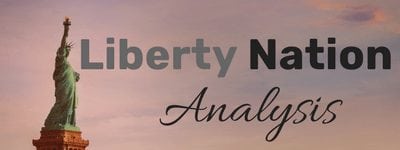Anytime trading partners are entrenched in a bitter dispute, whether it’s over the economy or foreign policy, diplomats and negotiators tread carefully. They employ a series of cordial and unwritten rules so as to not negatively impact deliberations, and many of these rules have become sacrosanct in the diplomatic realm. However, in the age of Twitter diplomacy, media leaks, and political contempt, it seems those days are long gone.
When President Donald Trump slapped tariffs on steel and aluminum imports against a plethora of jurisdictions, including China, the European Union (EU), and Canada, he justified the levies by citing national security. The move and reasoning sparked outrage among the U.S.A.’s allies and rivals alike, many of whom dismissed concerns that Brussels, Beijing, and Ottawa were threatening America’s national security.
Rather than rebuke Trump behind closed doors, they are openly doing so in landmark cases submitted to the World Trade Organization (WTO).
Whining to the WTO
The EU and China, joined in protest by Canada, Mexico, Norway, and Russia, recently filed complaints with the WTO. The six-nation offensive blitz argued that the White House’s claims are not defensible. However, Washington notes that it applied a rarely-used WTO national security exemption that permits governments to utilize “any action which it considers necessary for the protection of its essential security interests.”
Once a final decision is made on the case, there are two situations that could arise: If the WTO rules in favor of the U.S., then other states could rely on the same rule to justify their own trade levies. If the WTO agrees with Beijing and Brussels, then the Trump administration may decide to walk away from the Switzerland-based institution.
 Maria Åsenius, chief of staff to European Trade Commissioner Cecilia Malmström, told reporters that if the U.S. keeps using the national security excuse for penalties on a diverse array of exports, then “You don’t have any rules anymore in the WTO.” She added that the EU would launch further complaints if America imposes tariffs on automobiles and car parts – or French wine.
Maria Åsenius, chief of staff to European Trade Commissioner Cecilia Malmström, told reporters that if the U.S. keeps using the national security excuse for penalties on a diverse array of exports, then “You don’t have any rules anymore in the WTO.” She added that the EU would launch further complaints if America imposes tariffs on automobiles and car parts – or French wine.
Meanwhile, Zhang Xiangchen, China’s ambassador to the WTO, thinks the national security exemption “should not be used in an abusive way.”
The White House accused the complainants of “hypocrisy” because they are ready to “undermine the dispute settlement system,” but then they want to “pretend to follow its rules.”
No matter what happens, Pandora’s Box has been opened, because these disputes will inevitably undermine the legitimacy of implementing tariffs, embargoes, and restrictions based on national security. What’s to prevent any of the 164 members to adopt the same strategy?
A final decision will be issued within nine months, not including appeals that could take years.
Walking Away
The punditry class has asserted that President Trump is dismantling the WTO. Is that a bad thing?
President Trump’s trade policies are highly questionable, but the WTO’s repeated attacks on free trade, national sovereignty, and decentralization are grounds to either walk away from the table or tear the building apart brick by brick. It is a useless organization that benefits only the state, not free trade or consumers.
Despite more than 20 years of promises to liberalize international trade, the WTO has done more to enable a bureaucratic, protectionist agenda and censure commerce and competition. When you have 164 members, it is nearly impossible to foster an environment of open trade, economic stability, and competitive markets. Remember, before Trump came along, a whole host of states embarked upon the mercantilist journey, applying their own tariffs on goods and services – and the WTO allowed it.
[perfectpullquote align=”right” bordertop=”false” cite=”” link=”” color=”” class=”” size=”24″]The punditry class has asserted that President Trump is dismantling the WTO. Is that a bad thing?[/perfectpullquote]
In the past, there weren’t any entities like the WTO, the World Bank, or the International Monetary Fund (IMF) to routinely intervene transactions between importers and exporters. Contracts were regulated by merchant law, and businesses were kept honest through consumer independence and reputation.
Of course, the globalists and statists do not like this approach to trade because they are unnecessary to the process. They are unable to intervene in financial affairs, micromanage the economy, and control the public. The greater the bureaucracy, the more politicized trade becomes. With $200 million in tax dollars going to the WTO, it is impossible not to fall into a chasm of red tape and cronyism.
As Liberty Nation’s Tim Donner so aptly penned, “Trump is the guy who barges in, turns the lights on in the darkroom, and forces the cockroaches to come out of hiding,” Let’s hope he not only extinguishes the WTO cockroaches, he burns the place down – metaphorically speaking, of course. You don’t need a bureaucratic monstrosity to achieve trade; you only need willing and voluntary participants.



